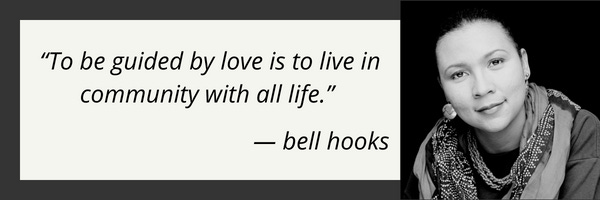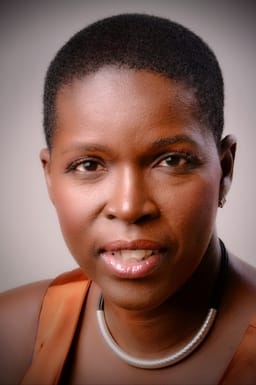🌱 'I Am Because We Are': Prioritizing Community Care
Part I: Community Care vs. Capitalism
🤓 Bite-Sized Knurd: Humans have moved away from community-focused societies. This has separated us from our human needs. A resurgence of community care is an opportunity to heal us as we navigate a challenging time in history.
In Case You Missed It: We Are More Segregated Today Than Ever
'I Am Because We Are': Prioritizing Community Care
Part I: Community Care vs. Capitalism
Read the full series: Parts I, 1b, II, III, IV
There is an Ubuntu saying, “I am because we are”
When you say hello in Ubuntu, you say “I see you” with the response “I exist.”
How profound is that?
You see me and therefore I exist. I exist because you exist.
Our western culture has separated us from connection. Capitalism asks us to rush through life, work a 40+ hour work week, and prioritize only ourselves or our nuclear family.
But living in this way separates us from so much of what makes us human.
- From our own bodies which send us signals to tell us how we’re feeling or where the danger is.
- From the creatures that can teach us how to thrive.
- From the planet so that we don’t notice the increasing environmental destruction around us.
- And from each other who can make us feel a little less alone in our experiences.
That kind of living means we have less time for connection, contemplating different ways of living, or staying grounded in our own bodies.
But the capitalistic way of living is still relatively new. Ubuntu is only one of the many philosophies and cultures on this planet that recognizes the intrinsic link we have to each other, the planet, and all of its inhabitants.
Before colonialism fundamentally altered society, Native American, Asian, African, and other cultures focused on the collective. (We covered this in our first-ever series). Colonialism was designed to separate so that the European view could be dominant. By stripping indigenous cultures of their more spiritual and community-centered cultures, it made it easier for them to assimilate them into Western cultural and economic practices.
As our capitalist society has grown increasingly more complex, we are in need of a resurgence in community care.
Community Care is both Selfless and Selfish
American society places a high emphasis on self-care that is driven by things that you buy (think bath bombs, scented candles, and weighted blankets). Sadly, buying more things will never truly heal us. It will only paper over the pain for a little bit.
“Shouting ‘self-care’ at people who actually need community care is how we fail people.” - Nakita Valerio
Remember, we are healing from systems, not just individual trauma.
Systemic trauma needs systemic healing.
We can’t heal from a system by ourselves. That’s where community care comes in.
Community care is exactly what you think it is, it’s when individuals provide support and care for others in their lives. Communities can be any collection of people like your neighbors, chosen family common in the queer community, or cultural groups.
The definition is broad on purpose because there is no one way to practice community care and it is more often based on the specific needs of the community. It could be a neighborhood group like Street Sing SF which invites neighbors to hang out and sing at one of the local street corners, a protest to push back against evictions, or a community food program.
The idea is that when we collectively support each other, we can all receive the benefits of the care.
Not only are others getting the support they need, but you get a boost for your do-gooding. Science has proven that helping others boosts your happiness, mental health, and life expectancy.
Studies like this continue to prove that we were meant to be in community. It is a basic human need that has gotten more difficult to achieve.
Community Care is How We Heal

It’s hard to believe but we’re in the third year of the Covid-19 pandemic. If you can harken back to the early days, you might recall feelings of connectedness. Even though we were shut indoors, there was so much solidarity whether it was picking up groceries for an elderly neighbor or hosting online dance classes for kids to give their parents a break. We felt connected because of the unknown. We intrinsically knew that we needed to stick together in the face of uncertainty.
However, as the pandemic continued, connection began to fray at the seams.
We’ve emerged from the early stages of the pandemic into a harder life than pre-pandemic. With an increase in inequality, corporate-backed inflation, the rise in fascism, the looming climate threat, and more, life has gotten more challenging. Unfortunately, our culture teaches us to look out for ourselves when things get challenging. So rather than emerging from lockdown united, we have become more pessimistic, scrappy, and individualistic.
This month we’re going to dive into how we can build our own community care in our lives and how Covid can be an important lesson. See you next week!
the roots of change media Newsletter
Join the newsletter to receive the latest updates in your inbox.



